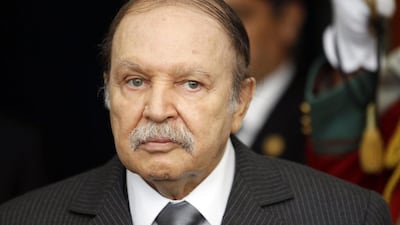In Algeria, the chief of the department of intelligence and security, Mohamed Mediène, also known as Toufik, was removed from his office last month.
He took the reins in September 1990, during one of the most difficult periods of contemporary Algerian history.
He was the last survivor of the group of ruling generals known as Eradicators. This group was behind the January 1992 coup.
During the civil war that followed the coup, the department of intelligence and security, led by Mr Mediène, headed the counter-insurgency efforts.
For some, Mr Mediène is the slayer of the republic, but for others he was its saviour.
Charismatic and secretive, it was said that no institution was immune from his schemes.
Through the department's networks, Mr Mediène exerted considerable power in Algeria’s army, media, business groups and political parties.
After backing Abdelaziz Bouteflika, the Algerian president, for his first three terms, he opposed his bid for a fourth term last year.
A close ally of the president later criticised him and accused his department of meddling. Mr Mediène left office after witnessing the dismemberment of the security apparatus he had created over a 25-year period.
The official restructuring of his department was conducted methodically.
Senior officers were eased into retirement, including the security chief of the army and the colonel in charge of the anti-corruption unit and the officer who handled the media. These departures were followed by the arrest of the head of counterterrorism. The department was also relieved of other key portfolios and responsibilities.
All this is believed to have happened because Mr Mediène was locked in a power struggle with the president and was reputedly intent on exposing corruption in Algeria’s highest offices and its corporations.
But given the economic crisis that courses through Algeria, the relatively uncertain political context that persists in part because of the president’s ill health and, indeed, the growing threat of ISIL, the discharge of Mr Mediène has raised many questions.
Has he left office because the presidency dismantled his responsibilities?
Many analysts believe his removal from office was triggered by his unyielding opposition to the looming revision of the constitution, which would pave the way to the succession of Mr Bouteflika's younger brother, Said, to the country’s top political job.
Does his departure usher a change in the Algerian political system? I am not so sure.
Despite recent unrest, Mr Bouteflika has no great interest in taking decisions that would disrupt the system.
On the contrary, he knows that his own continued existence and the survival of his coterie depend on the status quo. The removal of Mr Mediène is yet another way for the system to remain the same.
Dr Abdelkader Cheref is a professor at the State University of New York at Potsdam

